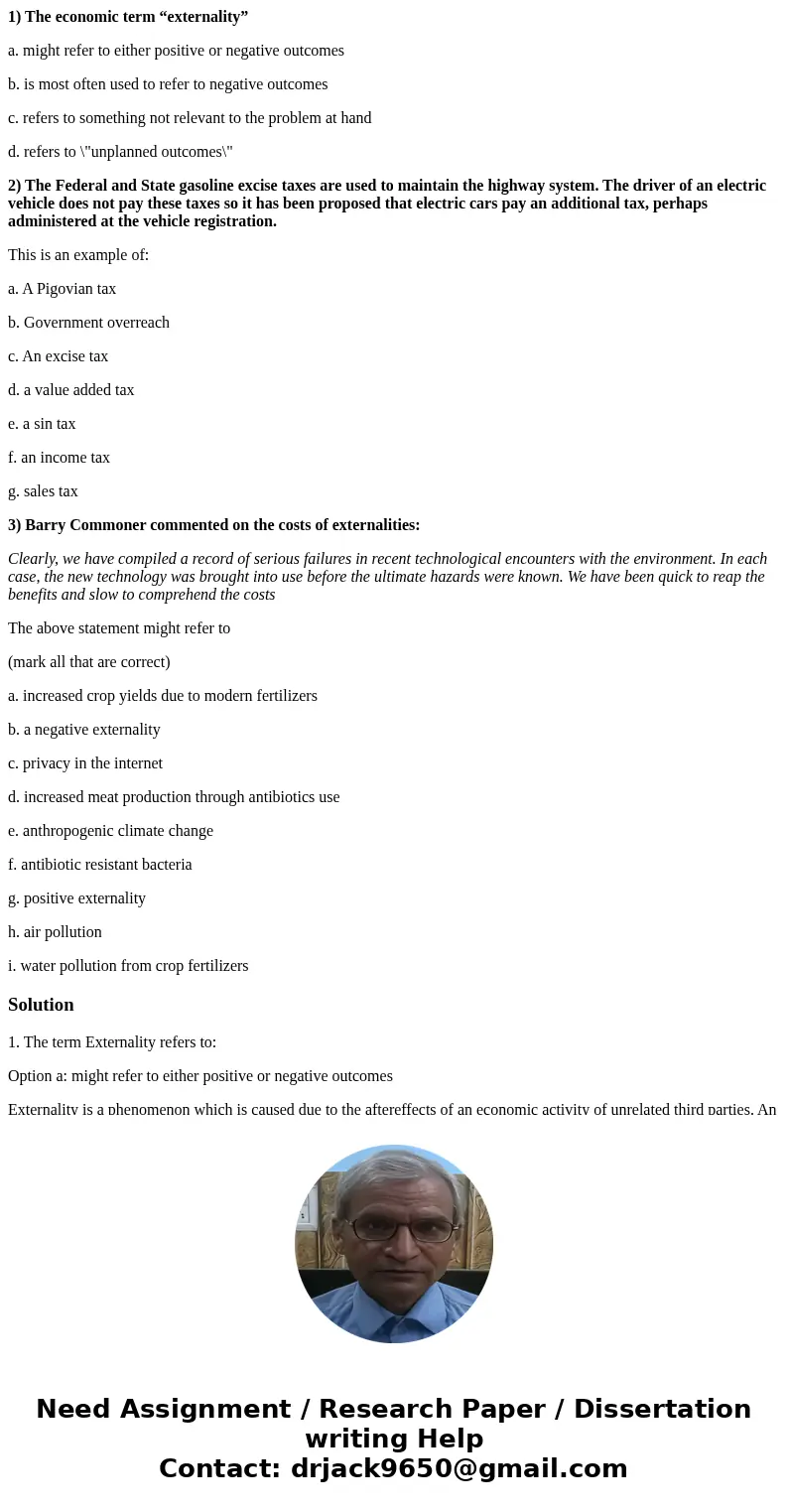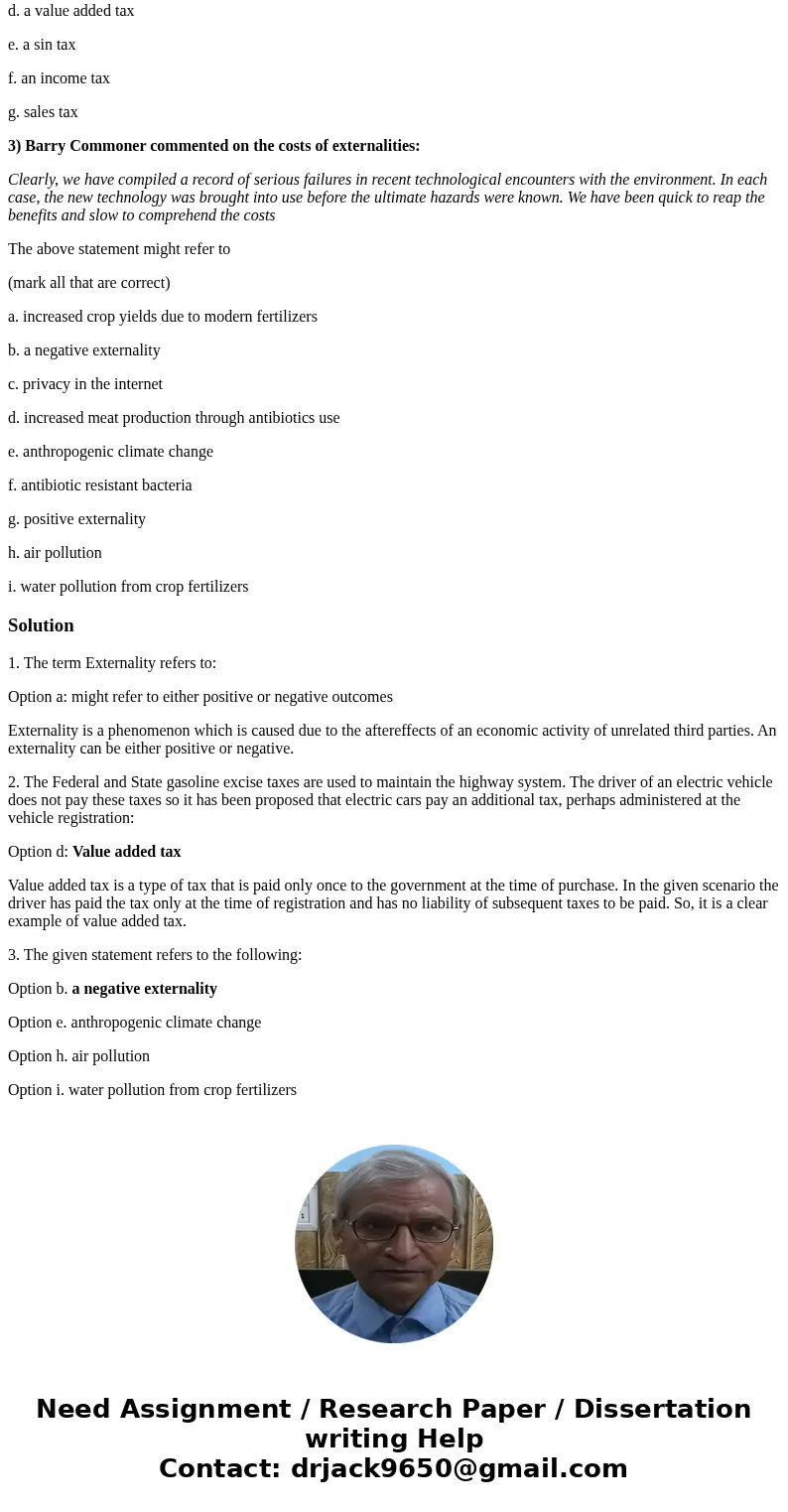1 The economic term externality a might refer to either posi
1) The economic term “externality”
a. might refer to either positive or negative outcomes
b. is most often used to refer to negative outcomes
c. refers to something not relevant to the problem at hand
d. refers to \"unplanned outcomes\"
2) The Federal and State gasoline excise taxes are used to maintain the highway system. The driver of an electric vehicle does not pay these taxes so it has been proposed that electric cars pay an additional tax, perhaps administered at the vehicle registration.
This is an example of:
a. A Pigovian tax
b. Government overreach
c. An excise tax
d. a value added tax
e. a sin tax
f. an income tax
g. sales tax
3) Barry Commoner commented on the costs of externalities:
Clearly, we have compiled a record of serious failures in recent technological encounters with the environment. In each case, the new technology was brought into use before the ultimate hazards were known. We have been quick to reap the benefits and slow to comprehend the costs
The above statement might refer to
(mark all that are correct)
a. increased crop yields due to modern fertilizers
b. a negative externality
c. privacy in the internet
d. increased meat production through antibiotics use
e. anthropogenic climate change
f. antibiotic resistant bacteria
g. positive externality
h. air pollution
i. water pollution from crop fertilizers
Solution
1. The term Externality refers to:
Option a: might refer to either positive or negative outcomes
Externality is a phenomenon which is caused due to the aftereffects of an economic activity of unrelated third parties. An externality can be either positive or negative.
2. The Federal and State gasoline excise taxes are used to maintain the highway system. The driver of an electric vehicle does not pay these taxes so it has been proposed that electric cars pay an additional tax, perhaps administered at the vehicle registration:
Option d: Value added tax
Value added tax is a type of tax that is paid only once to the government at the time of purchase. In the given scenario the driver has paid the tax only at the time of registration and has no liability of subsequent taxes to be paid. So, it is a clear example of value added tax.
3. The given statement refers to the following:
Option b. a negative externality
Option e. anthropogenic climate change
Option h. air pollution
Option i. water pollution from crop fertilizers


 Homework Sourse
Homework Sourse